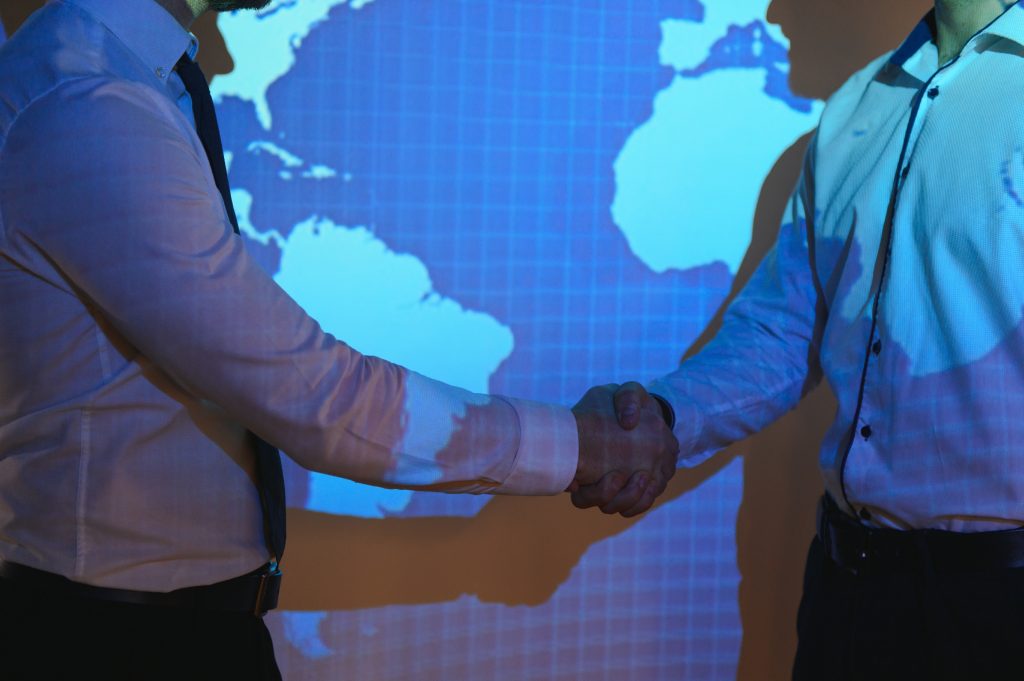In the run up to the annual Real Business First Women Awards on 11 June, were opening up the vote for Business of the Year to you, our readership. From a shortlist of five (Arup, EY, John Lewis, MITIE and Procter & Gamble), we want to know which organisation goes beyond statutory requirements in promoting and developing a talented female workforce.
To provide a more up to date viewpoint on each company, Real Business has interviewed a senior decision maker at each and compiled a feature including all the relevant information you need to vote.
First up is Arup, an employee-owned business that traces its roots to 1946 when it was founded by Anglo-Danish engineer Ove Arup. The engineering and design consultancy now has operations spanning 39 countries and employs in excess of 11,000 people.
The firm is owned in trust on behalf of its staff. Vicky Evans, who heads up the Diversity Programme for the UK, Middle East and African region states that this results in an independence of spirit that is reflected in the firms work . Core to this is the, embracing of different cultures, diversities and backgrounds. Arups companys values stem back to its founder who, who set out a plan to create a business that equally valued both men and women.
He saw diversity as utilising the best skills, no matter of background,” Evans explained. Diversity is very important as the firm is all about the built environment, our work lasts for years. We need evidence of diversity in the buildings we create.
Arups vision for Diversity and Inclusion reflects these core values – acknowledging and celebrating differences and ensuring that everyone is treated fairly. By embracing an inclusive culture that enables everyone to feel they have a voice, and to be themselves and supports diverse talent, we are able to collaborate successfully. Evans explained.
Evans told Real Business that Arup began looking in more detail at its diversity programme about seven years ago, particularly on the gender front. The last three years have all been about making sure leaders have the best tools in place when it comes to aspects such as recruitment, decisions around promotions and formation of project teams. In 2008 the network called Connect Women was rolled out, to provide support, encouragement and targeted information, a platform for discussion, a forum to open up new business opportunities, and to encourage women to be early adopters of new business initiatives and pilots. The Network profiles senior female role models and has formed a mentoring framework. The network, Evans added, has served as a tool for discussion and debate helping to raise the profile of gender diversity in what is traditionally a male-dominated industry.
Have a look at the full First Women Awards 2015 shortlist
The cold hard stats show initiatives are working and that Arup has grown female staff from 30.2 per cent in 2011 to 32.2 per cent in 2015. Perhaps what is more impressive is the percentage of females in leadership, up to 17.1 per cent from 13.8 per cent over the same period. The proportion of women on its UKMEA board recently reached the 23 per cent mark. And Arup works hard to retain its female staff throughout their career and boasts a 96 per cent return rate when it comes to maternity.
Arups diversity and inclusion strategy, which is set to run from 2015 to 2017 features seven key principles . Informed and measured, flexible, connected and engaged, balanced, transparent and accountable, industry-leading inclusive recruiter and employer and no nonsense communication will dictate its activities.
Evans also revealed that the retention of its talented female staff is high on the agenda, so rewarding and promoting staff based on merit is actively encouraged through the firms inclusive leadership and unconscious bias training. The leadership pipeline is regularly reviewed by Team Leaders to ensure that female staff are rising through the ranks without barriers. As it stands, Evans believes Arup is punching above our weight when it comes to a place for women to work.
Evidence of this was the companys recent inclusion in The Times Top 50 Employers for Women 2015. The list, which does not have a ranking, highlights businesses in the UK that are leading the way in gender equality in the workplace.
Read our other four Business of the Year profiles:
Its gender push in the UK sits alongside what also goes on around the world. Our structure is that we have a global diversity chairman who is our chairman,” Evans explained. We are then structured in terms of regions, with one in Europe, the Americas, East Asia and Australasia. Each of those has an equivalent of me who feeds back into our global diversity chairman. This is a great way to share best practice with each other.
On the flexibility front, an issue which has generated a lot British column inches recently after the introduction of new flexible working legislation at the end of 2014, Arup wants to make sure its staff can seek different working arrangements during their careers.
In terms of flexible working and shared parental leave, the UK are leading,” Evans said.
When asked what some of the Arup success stories have been when it comes to gender diversity, Evans pointed to the companys Inclusive Leadership programmes. Some 450 leaders have gone through training to eliminate bias and found it to be very helpful.
On the senior leadership role model front, Evans highlighted Dervilla Mitchell who is on the group board at Arup. Having risen through the ranks at the company, she was the first female group board member and currently leads the aviation side of the business.
Using the Connect Women initiative to drive debate and conversation saw over 250 staff attend an internal discussion on whether Arup should have quotas to increase female representation on group and regional boards. This shows were not afraid to have these discussions, it was so buzzing and vibrant,” Evans added. It pushes you when you have the boss of 11,000 people saying we are doing great but can’t rest on our laurels.
Arup is situated in a sector that is often picked out as one not pulling its weight when it comes to gender diversity. At a school-level basis, more is being done to encourage girls to move further forward with STEM (science, technology, engineering and mathematics) subjects, showing how wide and varied they can be and where career progression can be found. Arup is seeing the benefits of this engagement at a school level – over the last five ears, 35 per cent of their intake of graduates were women; which when considering that around 18 per cent of engineering students are women is some feat.
From the values of its founder, Arup has set forth its strategy for the coming two years and is firmly committed to building out female representation amongst its 11,000 staff and board population.























































































































































